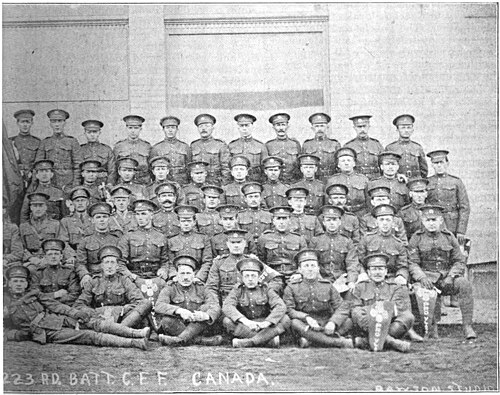Bohemian Contingent in the Canadian Forces
Since the Bohemians could not have an army of their own, they have determined to furnish a contingent of their emigrants for every Allied army. They have two divisions in Russia, composed mainly of Austrian soldiers who allowed themselves to be captured and then volunteered for service against the German armies; they have smaller detachments with the Serbians around Monastir, in the famous French foreign legion, in the English army, and now a company of Bohemian boys is on the way to England with the 223rd Battallion of the Canadian forces to fight the common foe.
At the time relations were broken off with Germany, Bohemian immigrants in Canada were trying to make up a company of their men in the 223rd battallion which was being organized at Portage la Prairie, Manitoba. But there were not enough of them in Western Canada, and appeal was made through Bohemian newspapers in Chicago for volunteers from the States. It was given heed specially in the [[Portal:Sokol}} gymnastic societies, and young fellows in the pink of physical condition and with limbs like acrobats streamed across the line in twos and threes until nearly the full complement of one company was secured just before orders came to entrain for England.
 |

|
A delegation of the Bohemian National Alliance went to Portage to bid farewell to the boys from the United States, most of them from Chicago. They presented Company C with the white and red Bohemian flag, which the company will be allowed to carry into the trenches. It was a special favor to the Bohemians, as neither companies nor battallions in Canada have flags of their own. They also brought with them a letter from Dr. L. J. Fisher, president of the Bohemian National Alliance, which Major Haneson read to the boys in the presence of the entire battallion and a distinguished gathering of visitors. The letter is as follows:
“Friends, in the name of half a million Czech
